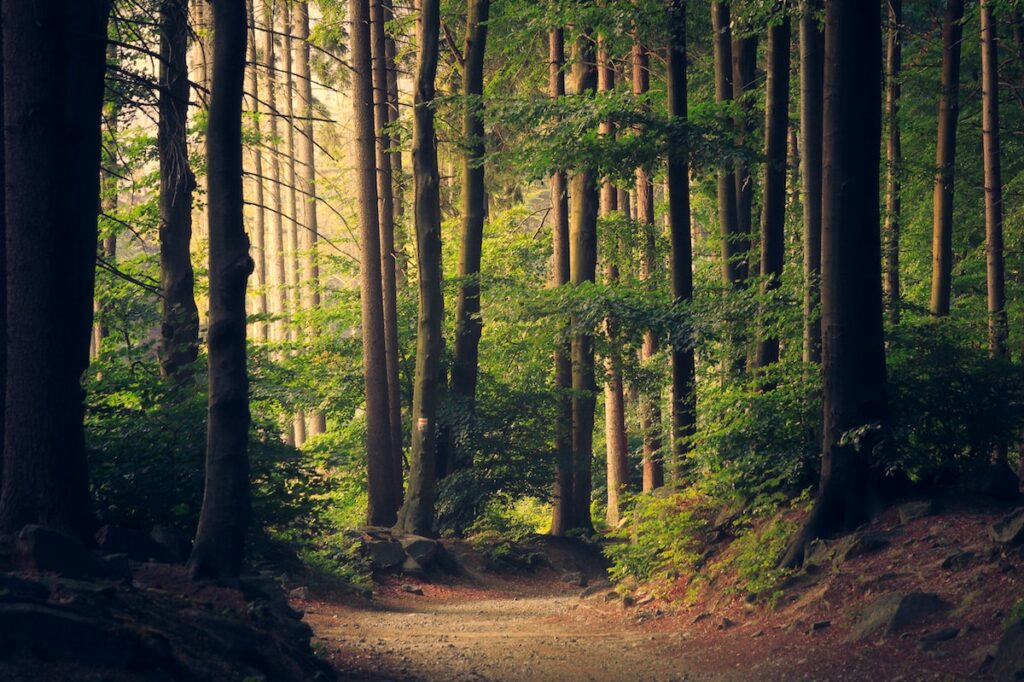Nature, A Stress Management Tool & The Impact on Mental Health

In the heart of the bustling cities, I often find myself under the spell of life’s modern dance. The hum of technology, the hypnotic rhythm of urban sounds, and the all- consuming- rapid-fire- pace of information that keeps us away from the most beautiful experience – Nature. This article explores the profound, yet frequently undervalued, impact of nature on our mental health, illuminating the path to a sanctuary of green, an oasis that our minds yearn for in this age of relentless digitization.
The piercing sunlight through rustling leaves, the distant trill of a bird’s song, or the gentle babble of a stream, these experiences take us to a place of peace and tranquillity. Far from being a metaphor or an aesthetic experience, nature is a necessity. An impressive body of research is demonstrating that nature has tangible, quantifiable impacts on our mental wellbeing.

Stanford University researchers, in a ground-breaking study, discovered that a 90-minute walk in a natural environment could significantly reduce rumination, a known risk factor for mental illness. Compared to participants who walked in an urban setting, those immersed in nature exhibited decreased activity in the prefrontal cortex, the brain region associated with rumination. The implications are remarkable – a simple walk in nature could have a profound impact on our brain’s activity, reducing the likelihood of developing mental health issues.
The University of Michigan added another dimension to this discourse. In a 2019 study, they found that spending just 20 minutes in a natural setting could lower levels of cortisol, the stress hormone. This underscores the potential of nature as a potent and accessible stress management tool.
Meanwhile, the power of blue spaces – bodies of water in outdoor settings – was highlighted in a 2020 study from the Barcelona Institute for Global Health. The research confirmed that individuals living closer to blue spaces exhibited less mental distress. The calming rhythm of the sea, the serene stillness of a lake, or the tranquil flow of a river, it seems, has a measurable effect on our mental equilibrium.
Nature’s impact is also significant when it comes to children’s cognitive development and emotional health. A 2019 study from Aarhus University, Denmark, found that children growing up surrounded by green spaces had a 55% lower risk of developing various mental disorders later in life. Could there be a more compelling argument for ensuring our urban designs incorporate ample green spaces?
Despite the overwhelming evidence of the salubrious effects of nature, our modern lifestyles often lead us away from it. The average American, according to a report by The Nielsen Company in 2018, spends nearly 11 hours a day interacting with media, while the National Human Activity Pattern Survey suggests that Americans spend 87% of their time indoors. These statistics are alarming and beg the question – are we losing touch with the soothing symphony of nature?
In this increasingly digital age, re-establishing our connection with nature is paramount. We are part of the natural world, and our minds echo this connection. As we increasingly recognize the need for holistic approaches to mental health, the call of the wild is not one to ignore. It is a call to our inherent home, a call to a healthier, more balanced state of mind.
In essence, nature is not just a passive bystander in our journey through life. It is an active participant, an unseen therapist, a source of solace and strength. As we grapple with a world constantly in flux, the timeless peace of nature holds an anchor for our minds. So, let’s heed the call of the wild, step outside, take a deep breath, and let nature work its magic on our minds.
The enveloping green of a forest, the soothing rush of a river, or the expansive beauty of a clear blue sky – these experiences are not just pleasant distractions, but powerful tools for mental rejuvenation. The University of Exeter, in a 2018 study, found that people who spent at least two hours a week in nature reported consistently higher health and well-being than those who did not.
As the sun sets and rises, the changing hues of the sky, the rhythm of the rain, the rustle of the leaves – these natural cues help to realign our body’s circadian rhythms, thereby improving sleep quality. A study by the University of Illinois in 2020 revealed that people living in neighbourhoods with more green spaces slept better than those living in less green areas. Improved sleep is directly linked to better mental health, including decreased risk of depression and anxiety disorders.

Even in urban environments, the simple act of adding more green spaces can have profound effects. A fascinating study from the University of Wisconsin found that neighbourhoods with more trees reported fewer cases of depression, anxiety, and stress. This finding holds tremendous implications for urban planning, suggesting that a greener city could be a happier, healthier city.
Nature’s influence extends beyond immediate emotional well-being. It fosters resilience, enabling us to navigate life’s storms with greater equanimity. The Japanese practice of ‘Shinrin-yoku’, or ‘forest bathing‘, has been found to improve feelings of gratitude, decrease feelings of anxiety, and improve mental clarity, according to a 2017 study conducted by the Nippon Medical School in Tokyo.
Even as we navigate the labyrinth of modern life, the solution to mental equilibrium might be as simple as a walk in the park or a moment spent admiring a blooming flower. The intricate network of neurons within our brains seems to echo the complex interconnectivity of the natural world, resonating with the rhythm of the earth, the seasons, the cycle of life.
Nature is a potent balm for our minds, a green prescription that has the potential to revolutionize our approach to mental health. As science uncovers the profound links between the natural world and our mental well-being, it becomes increasingly apparent that our future health lies in reclaiming our ancient bond with nature.
The whispering wind, the rustling leaves, the gentle stream – all these elements of nature are not just poetic musings but potent reminders of our deep connection to the world around us. In this era of digital dominance, let us remember to unplug, step outside, and immerse ourselves in the healing embrace of nature. As we replenish our minds in the verdant arms of the earth, we are not just spectators, but participants in a timeless dance of symbiotic healing. Let nature be the therapist we didn’t know we needed. After all, the path to mental health might just be a path through the woods.





